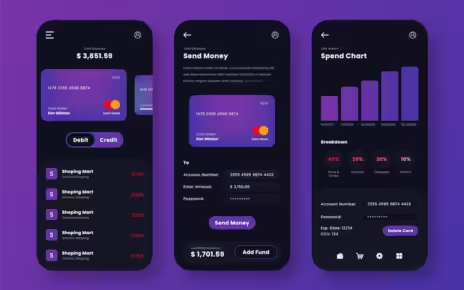Mobile apps have become an essential part of our lives, and we rely on them for a variety of tasks, from staying in touch with friends and family to managing our finances and working on the go. To ensure that mobile apps provide a smooth and seamless user experience, it’s essential to optimize their performance and speed. In this blog, we’ll discuss how to optimize mobile app performance and speed, and how a web development company in Dubai can help you achieve your goals.
Choose the Right Platform
Selecting the right platform is crucial to optimizing mobile app performance and speed. Mobile applications primarily target two main platforms: iOS and Android. Each platform has its own strengths and weaknesses, and your choice of platform will depend on your target audience, goals, and budget.
iOS is known for its simplicity and intuitive user interface, while Android is known for its open-source platform and customization options. If you’re targeting a global audience, Android may be a better choice, as it has a larger market share worldwide. If you’re targeting a more exclusive audience or have a limited budget, iOS may be a better option, as it has a higher percentage of users who make in-app purchases and spend more money on apps.
Optimize App Size
The size of an app can affect its performance and speed. Large app sizes can take longer to download, install, and update, which can make users abandon the app before even trying it. To optimize app size, you should use efficient coding practices and avoid unnecessary features or components. You can also compress images and videos, and use third-party libraries that are optimized for speed.
Use Efficient Coding Practices
Efficient coding practices can significantly improve mobile app performance and speed. This includes using coding languages and frameworks that are optimized for mobile devices, such as Java, Kotlin, Swift, and React Native. You should also optimize code performance by removing unused code, optimizing data storage, and minimizing network requests.
Minimize Network Requests
Network requests are a common cause of slow mobile app performance. You can minimize network requests by using caching and preloading techniques, which store data locally on the device and reduce the need for network requests. You can also optimize network requests by compressing data, using HTTP/2, and minimizing the size of images and videos.
Optimize User Interface
The user interface (UI) of an app can significantly affect its performance and speed. A cluttered and confusing UI can make users abandon the app and look for alternatives. To optimize UI, you should use minimalistic designs and intuitive navigation. You should also use animations and transitions sparingly, as they can slow down the app if not used correctly.
Test and Optimize
Testing and optimization are critical to achieving optimal mobile app performance and speed. You should test the app on different devices, operating systems, and network conditions to identify and resolve performance issues. You should also monitor key performance indicators, such as load times, response times, and crash rates, and use analytics tools to identify areas of the app that need optimization.
Conclusion
In conclusion, optimizing mobile app performance and speed is essential to providing a smooth and seamless user experience. To optimize mobile app performance and speed, you should choose the right platform, optimize app size, use efficient coding practices, minimize network requests, optimize user interface, and test and optimize. A web development company in Dubai can help you optimize your mobile app performance and speed by providing mobile app development, mobile app optimization, and mobile app consulting services. By optimizing your mobile app performance and speed, you can provide a better user experience, increase user engagement and retention, and achieve your business goals.




